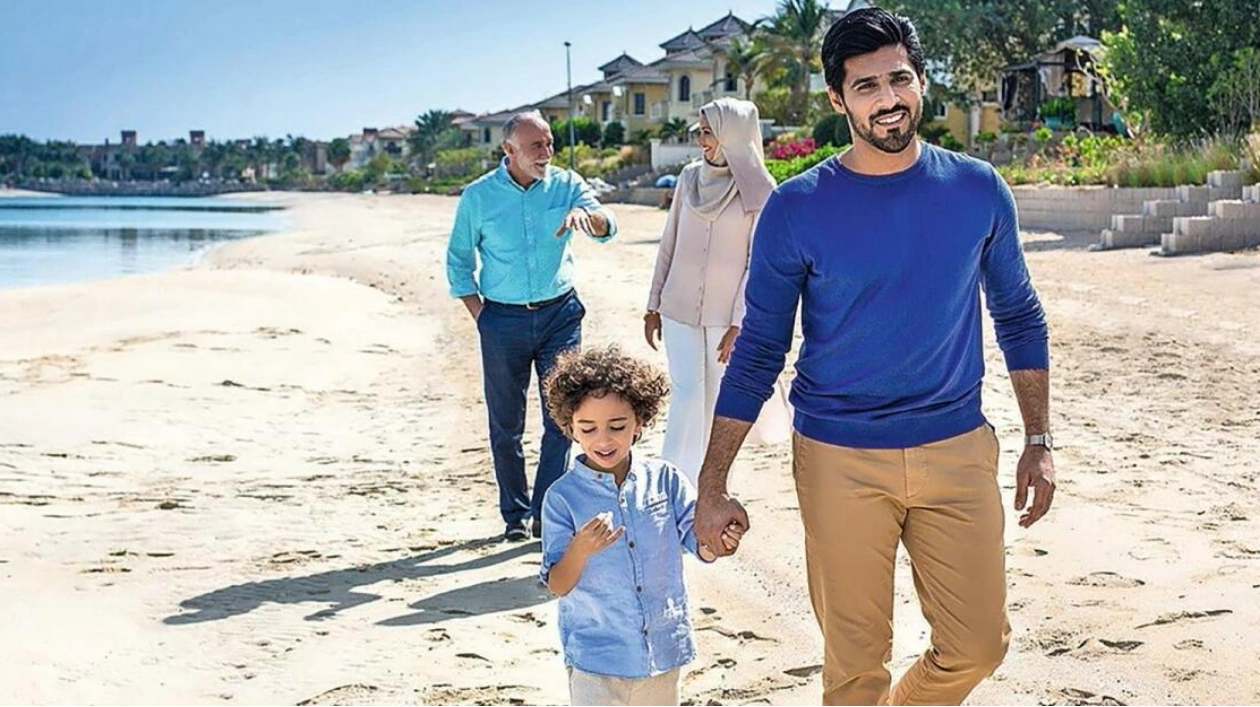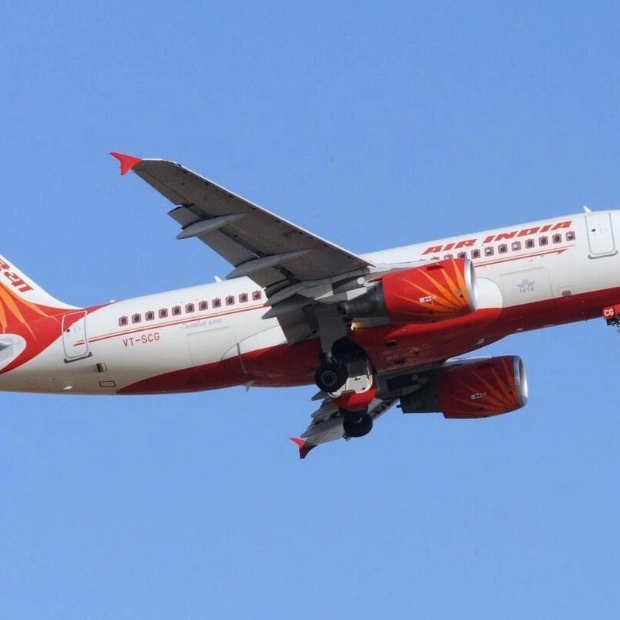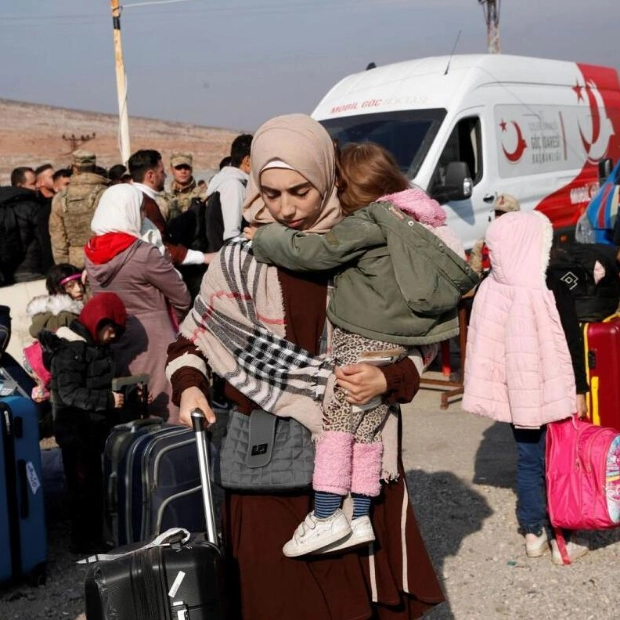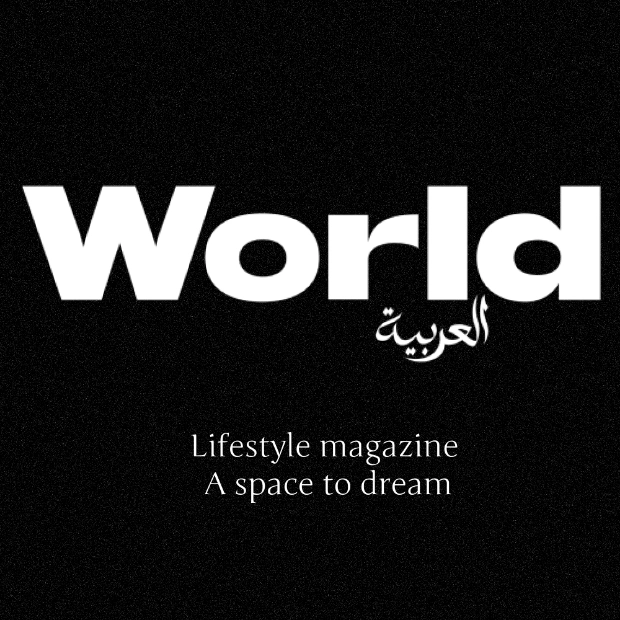The UAE has emerged as a top global destination for individuals and families seeking a fresh start. Each year, thousands of expatriates relocate to the UAE for career advancement, often bringing their families to enjoy a better quality of life. However, if expatriates or residents in Dubai wish to bring family members, including spouses, children, and other dependents, they must sponsor them for a residence visa. If you plan to sponsor your family members, here are the essential steps and requirements to follow:
Firstly, you must be employed, and your employer must secure a work permit and a valid residency visa, which is essential for working and living in the UAE. If you intend to bring your family along during your initial travel, you can bring them on visit visas, allowing them to stay in Dubai while you initiate the residency visa process. The process of sponsoring family members is straightforward but requires adherence to legal procedures.
Eligibility criteria for sponsoring a Dubai visa include:
- Minimum salary: Expats can sponsor their families if they earn a minimum salary of Dh4,000 or Dh3,000 plus accommodation.
- Medical fitness examination: Applies to all those aged 18 and above.
- Time limit: A resident sponsor has 60 days to apply for dependents’ residence visas after they enter the UAE under an entry permit.
- Sponsoring parents: Requires a salary of Dh10,000.
- Profession: No longer a condition for sponsoring family visas.
- Housing: Adequate housing, whether rented or owned, is required.
- Employment: Expats must be employed or own a business to sponsor family members.
An expat resident can sponsor the residence visa for their wife and children, provided they meet the sponsorship requirements. The duration of residency for children should match that of their parents, typically two or three years. To sponsor a wife, the expat must provide proof of their marital relationship, such as an attested marriage certificate in Arabic or an officially translated version.
In specific cases, a Muslim resident may be allowed to sponsor two wives, subject to terms and conditions set by the Federal Authority for Identity, Citizenship, Customs & Port Security (ICP). An expat can sponsor their unmarried daughter(s) without age restrictions and their son(s) until they reach the age of 25. Sons with special needs can be sponsored without age restrictions.
For babies born in the UAE, a residence visa must be applied for within 120 days of birth to avoid fines. An expatriate resident can sponsor stepchildren, subject to conditions including a deposit and a no-objection certificate from the biological parent. Their residence visas are valid for one year and are renewable annually.
When applying for sponsorship for a family member, ensure you gather all required documents before visiting the GDRFA office or a typing centre. This will facilitate a smooth and efficient application process.
To sponsor parents, the expat must meet minimum salary requirements and arrange medical insurance for both parents, which must be renewed annually. An expat can sponsor their parents for up to a year by paying a deposit as a guarantee for each parent. Both parents must be sponsored together unless specific circumstances apply.
To sponsor a family member for residency in the UAE, the expat can apply online through the General Directorate of Residency and Foreigners Affairs (GDRFA) for Dubai or through the Federal Authority for Identity, Citizenship, Customs, and Port Security (ICA) for other emirates. Applicants can also visit the nearest Amer Centre or typing centres to apply for a residence permit.
Family visa fees in the UAE can vary depending on the emirate and the type of visa. For Dubai, according to the GDRFA website, the fees for a family visa are typically as follows:
- Residence permit fee: Dh200
- Extra charge: Knowledge fee: Dh10, Innovation fee: Dh10
- Fee inside the country: Dh500
- Delivery: Dh20
Note: The issuance fee increases by Dh100 annually whenever the residency is over two years.
Once the family visa application is approved, family members over the age of 18 must undergo a medical fitness test. This test screens for various contagious diseases, including HIV, AIDS, tuberculosis, leprosy, Hepatitis B, and C. The test results must be submitted to proceed with the residency visa process for the family members.
Emirates Health Services (EHS) test centres in Dubai include Al Nahda Centre, Salah El Deen Centre, Ibn Battuta Centre, Al Khubaisi Centre, Dragon Mart 2 Centre, and Al Baraha Smart Centre. The fee for the medical fitness test varies depending on the category.
Only after clearing the medical examination can the applicant proceed with obtaining the Emirates ID and having the residency visa stamped in their passport. You can apply for a new Emirates ID card through the website of the Federal Authority for Identity, Citizenship, Customs and Ports Authority (ICP) or at accredited typing centres across the UAE. The cost of getting an Emirates ID is Dh370, with an additional fee of Dh150 for urgent service.
Family residency visas are usually tied to the sponsor's visa status and can be issued for periods ranging from one to three years. When it's time to renew the visa, it's crucial to start the process well before the expiration date to avoid penalties or overstaying fines. The renewal process is similar to the initial application.
Staying informed about any changes to residency and visa regulations is crucial. In the UAE, the GDRFA and the ICP are the primary authorities overseeing visa and residency matters.
Source link: https://www.khaleejtimes.com






